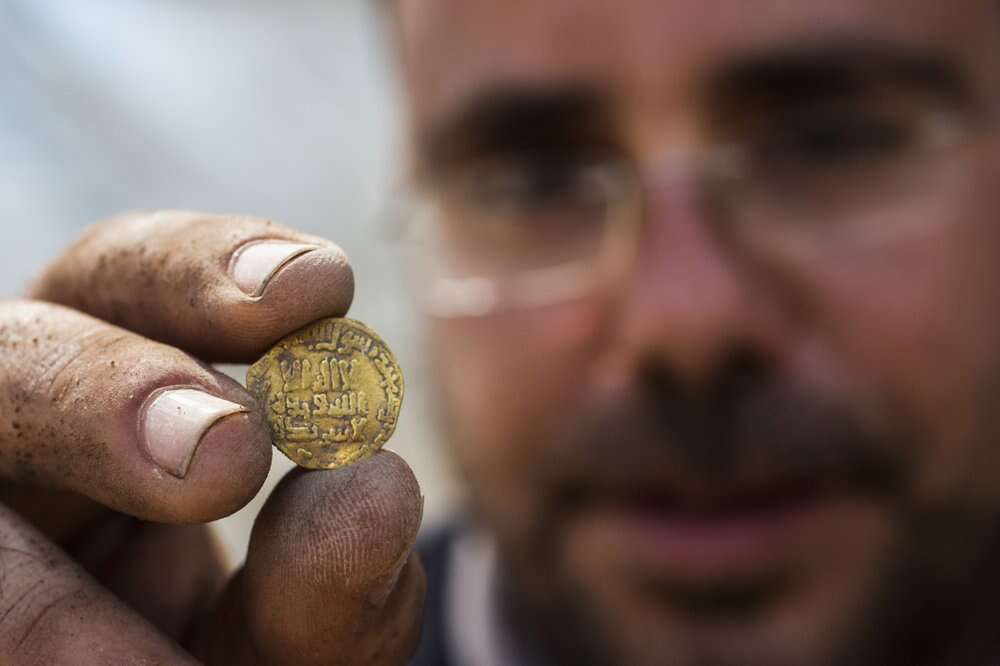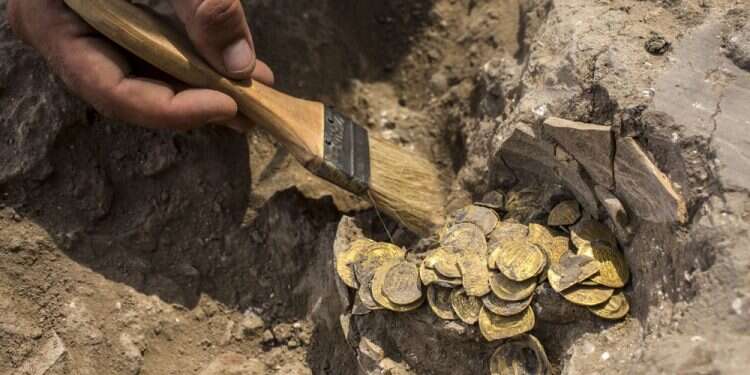Israeli archaeologists announced Monday the discovery of a trove of early Islamic gold coins found during recent salvage excavations near the central city of Yavne.
The collection of 425 complete gold coins, most dating to the Abbasid period around 1,100 years ago, was an "extremely rare" find, Israel Antiquities Authorities archaeologists Liat Nadav-Ziv and Elie Haddad said in a joint statement.
Follow Israel Hayom on Facebook and Twitter
The trove, which was unearthed by youth volunteers, also included hundreds of smaller clippings from gold coins that would have served as smaller denominations.
Video: Reuters
Dating back to the ninth century Abbasid Caliphate period, the 425 24-carat pure gold coins would have been a significant amount of money at the time, said Robert Kool, a coin expert at the Antiquities Authority.
IAA coin expert Robert Kool said an initial analysis indicates the coins date from the late 9th century, considered the golden age of the Abbasid Caliphate that controlled most of the Near East and North Africa.

The discovery was among the largest caches of ancient coins found in Israel. In 2015, amateur divers found around 2,000 gold coins off the coast of the ancient port city of Caesarea dating to the Fatimid period in the 10th and 11th centuries.
"Hopefully the study of the hoard will tell us more about a period of which we still know very little," Kool said.
"The person who buried this treasure 1,100 years ago must have expected to retrieve it and even secured the vessel with a nail so that it would not move. We can only guess what prevented him from returning to collect this treasure," said Nadav-Ziv.
Subscribe to Israel Hayom's daily newsletter and never miss our top stories!




